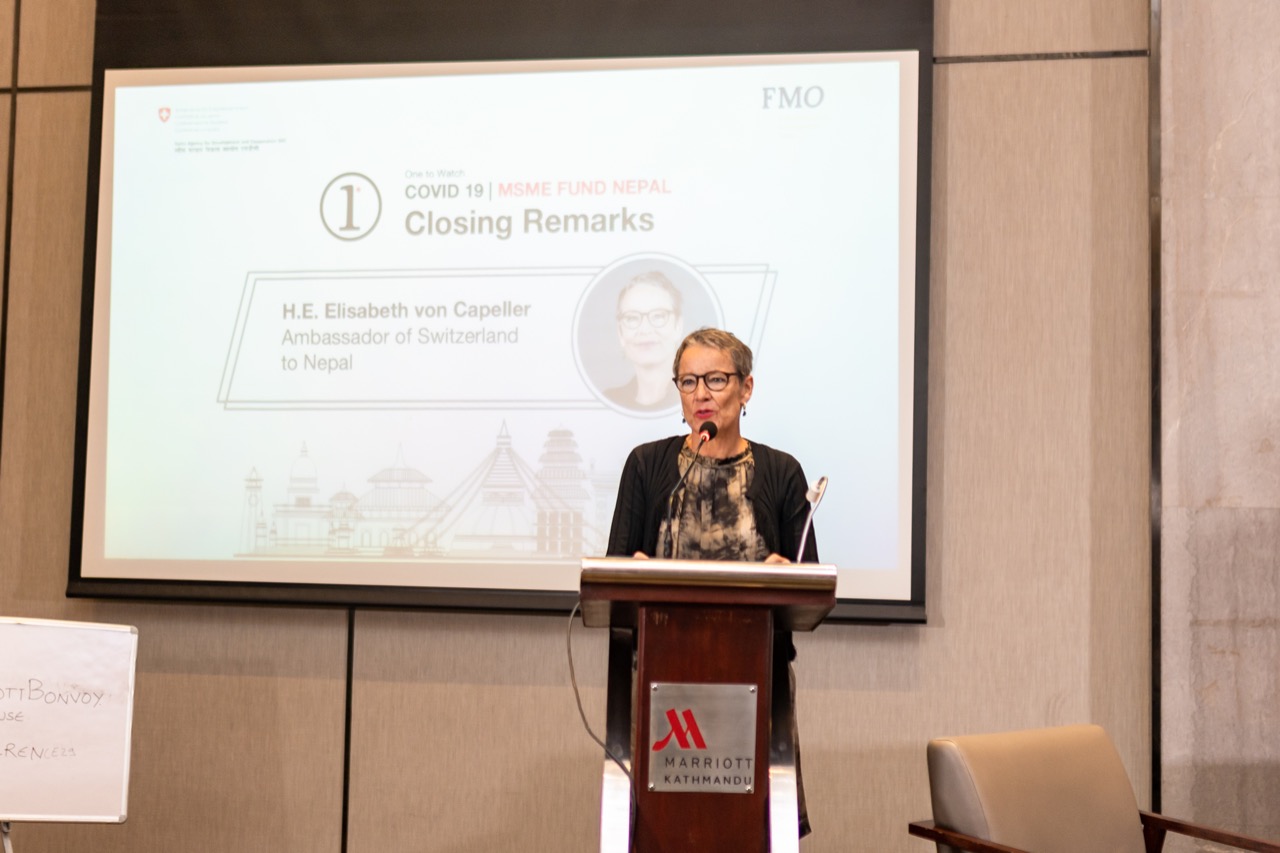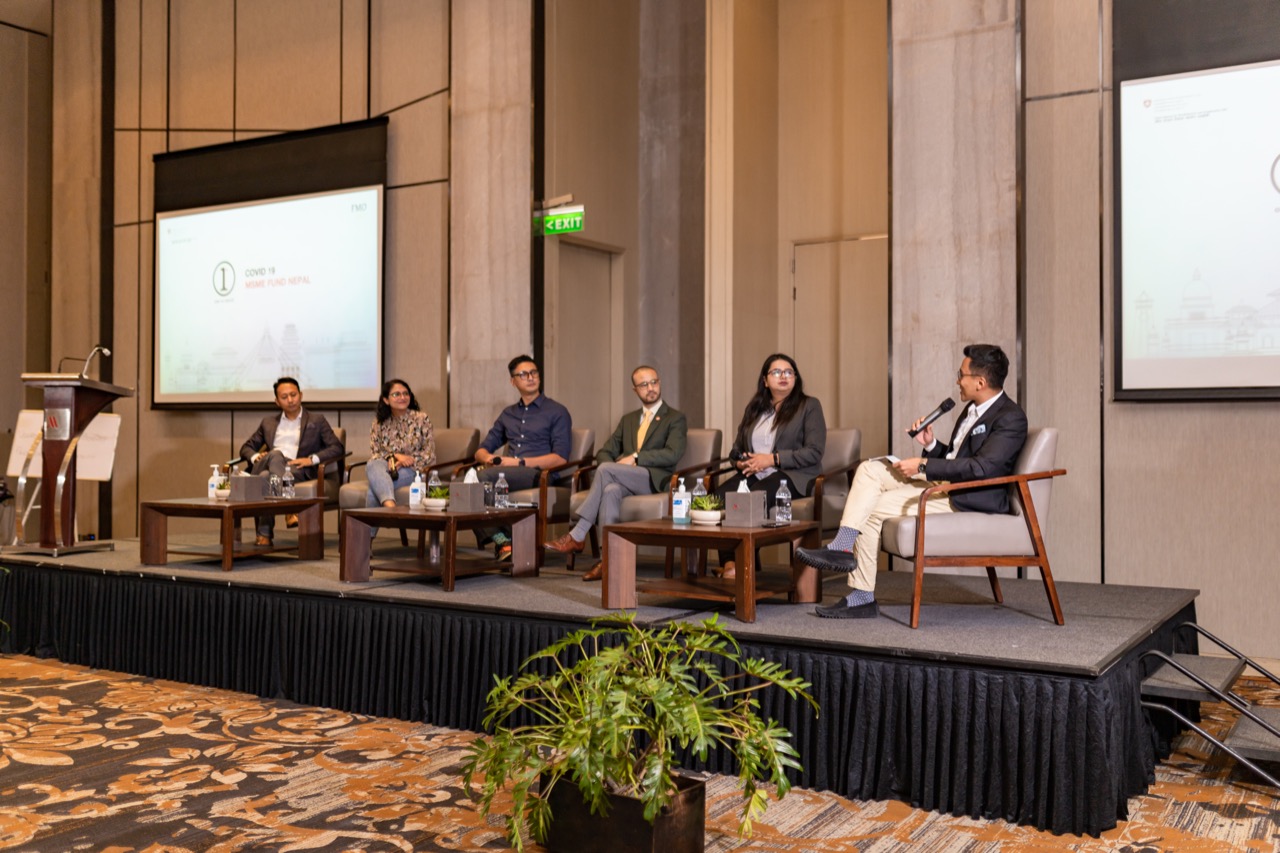MSME | scaling | access to finance | policy reform | digital | Business Development service

THE SUDDEN ARRIVAL OF THE COVID PANDEMIC in 2020 dealt a heavy blow to Nepal’s economy. All kinds of businesses were affected in some ways. But small and medium sized businesses, with little to no financial reserves, were the most vulnerable to COVID-19 and its economic impacts due to the nature of their work, which often involves physical interaction.
A 2020 survey carried out between May 25 and June 10 found that more than half of the country’s micro, small and medium enterprises (MSMEs) faced the risk of permanently going out of business within a month. And according to a sample of more than 540 representatives from MSMEs across the country, 80% of them saw a drop in sales, 40% granted leave of absence to employees, 27% slashed working hours and 12% of female employees were put on reduced pay.
Government support for micro, small and medium businesses was nowhere in sight despite contributing 22% to Nepal's GDP and employing about 1.75 million people. As the burden they faced got severe, One to Watch, an SME-focused impact fund, launched the first private sector led blended finance program – COVID-19 MSME Fund Nepal – in September 2020 to help affected businesses.
The program leveraged grant support from the Swiss agency for Development and Cooperation (SDC) and FMO, the Dutch entrepreneurial development bank, and mobilised private sector capital through three partner banks – NMB Bank, Laxmi Bank and Nabil Bank.
Through the fund, 170.8 million rupees in loans (free of interest and collateral) was mobilised across 100 companies all over the country.
“68% of our beneficiaries were first time borrowers and [the] majority of them received the maximum ticket size loan, reflecting the need and gap of financing for SMEs”, said Subrina Shrestha, Program Manager of One to Watch, during “COVID-19 MSME Fund Nepal–Showcase Event” which was held on May 9.
Besides monetary support, companies were provided with business development service to help improve their managerial and operational capabilities.
The outcomes of the fund were more than anticipated: 1,843 jobs were supported; new 368 jobs were created; and 50% female employees were retained. Among the beneficiary businesses were Naman Care Home, Sajilo Sewa, Leaf Plus and Dream Agro.
To boost Nepal’s economic growth and create jobs, the success of the MSMEs sector is important. Its success and growth, however, is impeded by many challenges.
The MSME sector often suffers from a lack of capacity to comply with legal standards and documentation. Anushka Bhattarai of Vidhi Legal Concern, a Kathmandu-based corporate law firm, said during the event, “Legal literacy is a major problem right now with entrepreneurs as they are more focused on scaling their business. Even though legal support directly does not increase sales, it plays an important role in streamlining your business required for scaling.”

Policy constraints that restrict access to finance is another challenge. “Today's collateralisation comes through regulation”, said Anirvan Ghosh Dastidar, CEO of Standard Chartered Bank Nepal. This means small businesses with lack of fixed asset collateral and personal guarantees are often denied necessary capital required for expansion.
Mr Dastidar continued with, “If the regulations can be worked in a manner” where there is an opportunity for “risk participation” through “a fund or non-fund-based kind of participation model with the multilaterals, perhaps a SME targeted fund or bond, spread over a ten-year tenure”, then banks are willing to lend out to MSMEs given their “track record”.
In Nepal, MSMEs have a “financing gap of $3.6 billion”, according to Chandni Singh, private sector development advisor at FCDO. To reduce some of the financing gap and minimise the financing risk for MSMEs from the supply side, she said that a model that integrates “both finance and business development services which has been excluded in the past” is necessary.
“Blended finance” – through which the fund was made possible – needs more participants to chip in. Though the approach has brought about meaningful impact, “for blended finance to be sustainable, the government needs to step in as equity partners”, added H.E. Elisabeth von Capeller, ambassador of Switzerland to Nepal. “It now needs to be scaled up.”
Third, a lack of workforce skills and managerial capacity to adapt to the changing business environment. The pandemic upended the working structure of many businesses. Many were forced to innovate and have an online presence. But given a dearth of those skills and capacity, some closed their operations permanently. Availability of business development services can bridge this gap for MSMEs.
In combination, these factors are enough to strangle their ability to be resilient. If MSMEs are to weather any economic turbulence, responsibilities rest both on the government and them to find solutions to those challenges and enable an environment where they can function smoothly. Blended finance can be one of those solutions.
Read More Stories
Kathmandu’s decay: From glorious past to ominous future
Kathmandu: The legend and the legacy Legend about Kathmandus evolution holds that the...
Kathmandu - A crumbling valley!
Valleys and cities should be young, vibrant, inspiring and full of hopes with...
Understanding federal grants in fiscal federalism
Local budgets are where democracy meets the daily lives of citizensthis is a...